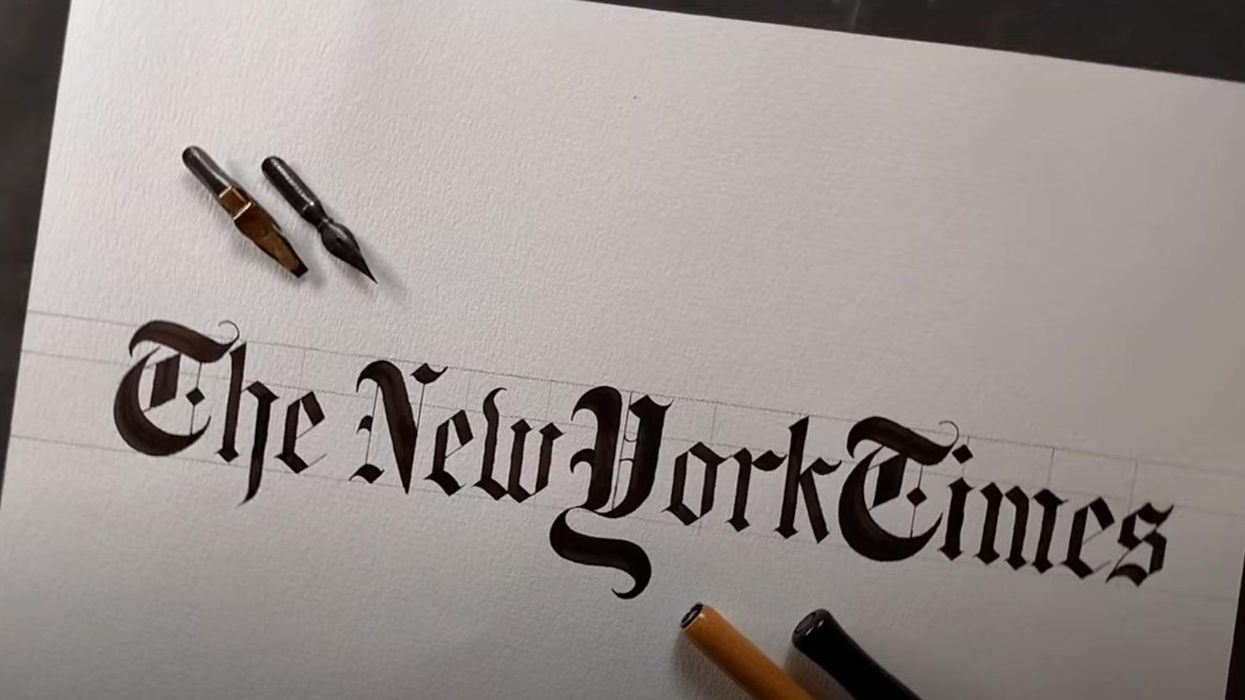If This Is The Future Of Big-Time Journalism, Count Me Out
I trust it will not come as much of a surprise if I tell you that the Grande Dame of Washington D.C. journalism, The Washington Post, is in the midst creating a new quasi-op-ed online section of the paper devoted to publishing “opinion articles from other newspapers across America, writers on Substack and eventually nonprofessional writers,” according to an article in the New York Times. The program, called “Ripple,” which I take as a direct insult to the Grateful Dead and lyricist Robert Hunter, will use – you guessed it – AI to develop what the Times called opinion pieces that will “appeal to readers who want more breadth than The Post’s current opinion section and more quality than social platforms like Reddit and X.”
The paper’s CEO, a British citizen by the name of Will Lewis, “has been looking for new ways to reduce costs at the company while finding new sources of revenue,” according to the Times. He landed on the magic bullet of using non-professional writers working with prompts from an AI writing tool called “Ember,” to go after a potential audience of 38 million adults located “outside of coastal elites.” The fly-over people, in other words.
Non-professional writers would be helped along with their submissions by the AI writing coach Ember, which will provide them with a “‘story strength tracker’ that tells writers how their piece is shaping up, with a sidebar that lays out basic parts of story structure: ‘early thesis,’ ‘supporting points’ and ‘memorable ending.’”
Just wow.
One source at the Post said that the Ember writing coach will also be “inviting authors to add ‘solid supporting points,’” which looks really, really promising to me.
With its dive into Ripple and using AI to prompt non-professional writers to contribute to its digital pages, the Post has “placed a greater emphasis on building deeper engagement with users to create paid subscription businesses.”
All of this is coming to light on a day that the Washington Post published an article on testing the ability of five AI tools to read and summarize material ranging from novels to legal documents, scientific research, politics, and speeches by Donald Trump. They used ChatGPT, Claude, Copilot, Meta AI and Gemini. The Post article did not get into whether the AI tools will be provided to its new cast of non-professional writers to use in their “research” for the AI-coached opinion writing they will be doing, but it’s not much of a stretch to assume that they will, especially given the fact that the Post has now done an official test to see how well the AI tools work.
The answer: not very well. All the AI tools generated made up or “hallucinated” stuff that wasn’t in their reading assignments. “None of the bots scored higher than 70 percent overall — the typical cutoff for a D+,” the Post reported.
So, there it is, folks. Who knows what desperation will cause the Washington Post to turn to in the future? You have to wonder if they’ve tried just making shit up, and then you recall many of their headlines on Trump-related stories. For example, Trump has spent hours at night rage-tweeting insane gibberish about judges, and the Post reported the next day that he engaged in “analysis” of where he stands in various “legal cases.”
I must add that reading the report on AI and Ripple and Ember and how they will be used in the production of news and analysis at the Washington Post has made me enormously thankful that I have the Substack platform to publish my own journalism.
I am even more thankful for the loyal readers who have stuck with me through the thousands of columns I’ve written during this four-year journey and most especially, my paid subscribers, including the those who responded to my announcement that Salon had stopped paying freelance writers, including me, by buying new paid subscriptions, giving gift subs, and upgrading to founding members to support my work.
Thank you, thank you, thank you!
Lucian K. Truscott IV, a graduate of West Point, has had a 50-year career as a journalist, novelist, and screenwriter. He has covered Watergate, the Stonewall riots, and wars in Lebanon, Iraq, and Afghanistan. He is also the author of five bestselling novels. He writes every day at luciantruscott.substack.com and you can follow him on Bluesky @lktiv.bsky.social and on Facebook at Lucian K. Truscott IV. Please consider subscribing to his Substack.
Reprinted with permission from Lucian Truscott Newsletter.












